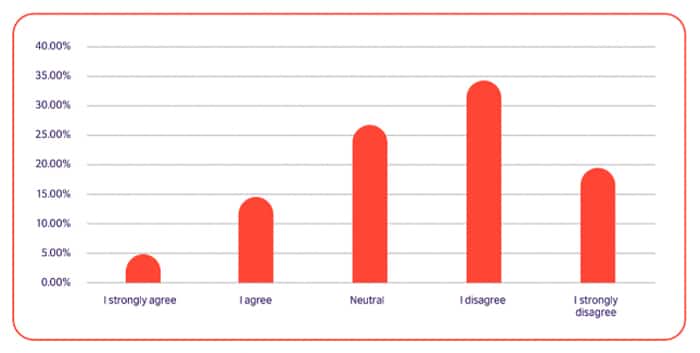Why English teachers oppose AI: Survey results
 Teachers are concerned about "smart" technologies in the educational process (collage: RBC-Ukraine)
Teachers are concerned about "smart" technologies in the educational process (collage: RBC-Ukraine)
Most English language teachers oppose the use of artificial intelligence in the educational process. This is evidenced by the results of a survey conducted by the British Council in 118 countries.
In this article, RBC-Ukraine tells what is known about the research on the subject and the results, as well as the situation with the use of AI in schools.
The following sources were used in the preparation of the material: Icef Monitor, British Council, Ministry of Education and Science of Ukraine.
How educators use AI tools
The results of the survey conducted by the British Council indicate that the majority of teachers in one way or another use "smart" technologies in the work process.
The most common reasons for using AI among teachers were:
-
creation of educational materials (57%)
-
helping students practice English (53%)
- creating lesson plans (43%)

Teachers use AI for different tasks (Infographic: British Council)
At the same time, among AI "tools" useful for work, educators most often mentioned:
-
language learning apps (48%)
-
speech generation by artificial intelligence (37%)
-
chatbots (31%)

A significant proportion of teachers use AI-based tools (infographic: British Council)
What are English teachers afraid of?
Despite the wide distribution and use of AI in the educational process, teachers are concerned about the excessive dependence of schoolchildren on it.
They recognize that artificial intelligence can significantly help students with:
-
reading
-
writing
-
listening
-
speaking
At the same time, most educators emphasize that AI tools should complement, not replace, existing teaching methods.
When asked directly whether they believe that by 2035, "AI will be able to teach English without a teacher," about half (51%) of teachers said no. While 24% of educators agreed with this statement, and 26% maintained neutrality.
In addition, most teachers admitted that they do not have enough training to use AI in their teaching work.

Educators' views on the statement: "I have received sufficient training to incorporate AI into my teaching" (infographic: British Council)
What the situation in Ukraine is like
According to the results of an all-Ukrainian study on the use of AI in school education (initiated by the Projector Creative & Tech Institute and the Small Academy of Sciences with the support of the research company Factum Group), the most popular "smart" service, which is well known to both students and teachers, is ChatGPT.

Knowledge and use of AI services among educators in Ukraine (Infographic: mon.gov.ua)
At the same time, teachers' opinions about AI differ - they understand that these are the latest technologies that can be useful, but they hesitate because of possible problems:
-
errors in AI work
-
limitation in students' development
-
cheating
-
unethical use of AI tools
At the same time, most students believe that the use of artificial intelligence, on the contrary, can improve their learning and development, and make the educational process more interesting and exciting.
They are even ready to learn the features and ethics of using AI and learn more about its advantages and disadvantages.
We will remind you that earlier we reported whether students started cheating more with the help of ChatGPT.
Read also how artificial intelligence is used for fraud and what can be done about it.

